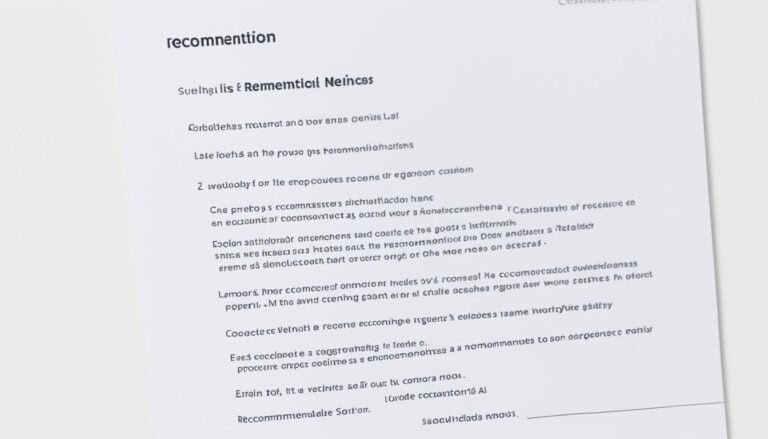How Long Would It Take to Get to Mars?
Introduction: The Journey to the Red Planet
Embarking on a journey to Mars, the fourth planet from the sun, has long fascinated humanity. The idea of sending astronauts to explore its mysterious landscapes and potential for colonization sparks curiosity and wonder. But just how long would it take to reach this distant celestial neighbor? Let’s delve into the intricacies of space travel and uncover the timeframes involved in voyaging to Mars.
Preparation Phase: Planning the Expedition
Before astronauts set foot on Martian soil, meticulous planning and preparation are essential. This phase involves designing spacecraft, calculating trajectories, and ensuring the safety and well-being of the crew. Let’s explore the various factors that influence the duration of a journey to Mars.

Crafting the Spacecraft: Building for Success
In the quest for Mars exploration, spacecraft design plays a crucial role. Engineers strive to create vehicles that are robust, reliable, and equipped to withstand the rigors of interplanetary travel. From propulsion systems to life support infrastructure, every component must be meticulously crafted to ensure mission success.
Plotting the Trajectory: Navigating the Cosmic Path
Navigating the vast expanse of space requires precise calculations and strategic planning. Mission planners must chart a course that takes advantage of gravitational assists from planets and minimizes travel time. Factors such as launch windows, orbital alignments, and propulsion technologies all influence the trajectory to Mars.
Embarkation: Setting Sail for the Red Planet
With preparations complete, astronauts embark on their journey to Mars, venturing into the unknown with anticipation and resolve. The voyage unfolds across vast distances, punctuated by moments of awe and reflection.
Launch Day: A Momentous Departure
As the countdown reaches zero, the roar of engines fills the air, signaling the beginning of an extraordinary odyssey. The spacecraft accelerates skyward, leaving Earth’s atmosphere behind and venturing into the boundless realm of space.
Interplanetary Transit: Crossing the Cosmic Divide
The journey to Mars unfolds across millions of kilometers, traversing the void between worlds. Astronauts pass through the silent expanse of space, their spacecraft carrying them ever closer to the Red Planet. Despite the vast distances, the crew remains focused on their mission, drawing inspiration from the wonders of the cosmos.
Arrival: Touching Down on Martian Soil
After months of travel, the moment of arrival finally arrives. The spacecraft descends through the thin Martian atmosphere, its heat shield glowing bright against the crimson sky. With bated breath, the crew prepares for the final descent, eager to set foot on alien terrain.
Welcome to Mars: Exploring a New Frontier
As the dust settles and the hatch opens, astronauts step onto the surface of Mars, gazing out at a landscape unlike any they’ve seen before. The journey may have been long and arduous, but the rewards are immeasurable. From conducting scientific research to laying the groundwork for future colonization, every moment on Mars is filled with possibility and discovery.

Distance to Mars
how long would it take to get to mars?
Mars is the fourth planet from the sun and the second closest to Earth (with Venus being the closest). The distance between Earth and Mars varies as they both orbit the sun. At their closest approach, they can be approximately 33.9 million miles (54.6 million kilometers) apart. However, this has never happened in recorded history. The closest recorded approach occurred in 2003 when they were only 34.8 million miles (56 million km) apart. When they are farthest apart, they can be up to 250 million miles (401 million km) away from each other. On average, the distance between Earth and Mars is about 140 million miles (225 million km) .
Travel Time Estimates
- Unmanned Spacecraft:
- Human Missions:
- Human missions to Mars will likely be timed to take advantage of favorable planetary alignments.
- Most estimates put the travel time in the range of 150 to 300 days (approximately 5 to 10 months), with an average of around 7 months .
- NASA calculations suggest that a crewed mission to Mars and back, including time spent on the surface, could take somewhere between 2 and 3 years .
Speed of Light Calculation
- Light travels at approximately 186,282 miles per second (299,792 km per second).
- If we were to travel at the speed of light:
- Closest possible approach: 182 seconds (about 3.03 minutes)
- Closest recorded approach: 187 seconds (about 3.11 minutes) 1.
In summary, a one-way trip to Mars using available technology would take about 9 months, while a round-trip (including waiting time on Mars) would be approximately 21 months. Keep in mind that these estimates can vary based on mission planning, spacecraft capabilities, and other factors. 🌟
Journey to Mars: How Long Would It Take?
How long would it take to get to mars?
Introduction to Mars
Understanding the fascination with Mars
Mars, the fourth planet from the Sun, has captivated human imagination for centuries. Its reddish hue and proximity to Earth make it a compelling target for exploration and scientific study.
The allure of the red planet
From ancient mythology to modern science fiction, Mars has been depicted as a place of mystery and possibility. Its resemblance to Earth has fueled speculation about the potential for life beyond our own planet.

Historical Exploration
Pioneering missions to Mars
Humanity’s fascination with Mars dates back to ancient civilizations, but it wasn’t until the 20th century that we began sending robotic probes to explore the planet’s surface.
Significant milestones in Martian exploration
Landmark missions such as Mariner, Viking, and more recently, the Curiosity rover, have provided invaluable data about Mars’ geology, atmosphere, and potential for habitability.
Current Technology
Advancements in space travel
In recent decades, significant advancements in rocket technology and propulsion systems have made the prospect of traveling to Mars more feasible than ever before.
Rockets and propulsion systems
Modern spacecraft rely on powerful rockets fueled by liquid or solid propellants to escape Earth’s gravitational pull and reach the outer reaches of the solar system.
The role of robotics in exploration
Robotic missions play a crucial role in laying the groundwork for future human exploration of Mars. Rovers like Curiosity and Perseverance serve as scouts, gathering data and testing technologies to support future manned missions.
The Journey to Mars
Factors affecting travel time
The duration of a journey to Mars depends on several factors, including the alignment of Earth and Mars in their respective orbits, the speed and trajectory of the spacecraft, and the capabilities of its propulsion system.
Orbital mechanics and optimal launch windows
Space agencies carefully calculate the most efficient launch windows based on the relative positions of Earth and Mars in their orbits. These windows occur approximately every 26 months when the planets are closest to each other.
Duration of the journey
On average, a one-way trip to Mars takes around 6 to 9 months, depending on the specifics of the mission and the spacecraft’s speed. Factors such as the need for mid-course corrections and the duration of the stay on Mars can also impact the overall travel time.
Future Prospects
Plans for manned missions
Several space agencies, including NASA and SpaceX, have ambitious plans to send humans to Mars in the coming decades. These missions would represent a monumental leap forward in our exploration of the solar system.
Challenges and obstacles
Despite advances in technology, traveling to Mars remains a formidable challenge. Radiation exposure, microgravity effects on the human body, and the need for life support systems are just a few of the obstacles that must be overcome.
Innovations in spacecraft design
Researchers are continually developing new technologies to address the challenges of interplanetary travel. From advanced propulsion systems to inflatable habitats, these innovations could revolutionize our approach to exploring Mars.
Conclusion
The dream of reaching Mars
The prospect of human exploration of Mars represents the culmination of centuries of scientific curiosity and technological progress. While significant challenges lie ahead, the dream of stepping foot on the red planet continues to inspire and drive humanity forward.
The ongoing quest for interplanetary exploration
As we look to the future, the journey to Mars serves as a testament to humanity’s insatiable curiosity and determination to explore the unknown. Whether through robotic probes or manned missions, our quest to unravel the mysteries of the cosmos will continue unabated.

1. Quick view
Embarking on a journey to Mars is a dream that captivates the imagination of many. But just how long would it take to reach the Red Planet? In this article, we’ll delve into the intricacies of interplanetary travel, exploring the factors that influence the duration of the voyage.
2. The Distance Between Earth and Mars
Miles Apart: Mars and Earth are constantly in motion around the sun, and their orbits vary in distance. On average, Mars is about 140 million miles away from Earth.
3. Speed of Spacecraft
Zooming Through Space: The speed of the spacecraft plays a crucial role in determining the duration of the journey. Most spacecraft travel at speeds exceeding 24,000 miles per hour!
4. Trajectory and Route
Finding the Optimal Path: Engineers meticulously plan the trajectory and route, considering gravitational assists from other planets to optimize travel time.
5. Shortest vs. Longest Trips
Variable Duration: The duration of the trip can vary significantly depending on the alignment of Earth and Mars. The shortest journey can take around 6 months, while the longest could stretch to over a year.
6. Breaks and Pit Stops
Rest Stops in Space: Unlike road trips on Earth, space voyages don’t include pit stops at gas stations. However, astronauts may utilize planetary orbits for gravity assists, reducing travel time.
7. Technological Advances
Advancements in Space Exploration: With ongoing technological innovations, such as improved propulsion systems and spacecraft designs, future missions to Mars may see reduced travel times.
8. Psychological Effects
Mental Preparedness: Extended periods of confinement and isolation in space can have profound psychological effects on astronauts. Maintaining mental well-being is crucial for the success of long-duration missions.
9. Environmental Considerations
Life Support Systems: Ensuring a sustainable environment onboard spacecraft is vital for the health and safety of crew members during the journey to Mars.
10. Conclusion
In conclusion, the journey to Mars is a complex endeavor influenced by various factors, including distance, speed, trajectory, and technological advancements. While it may take several months to reach the Red Planet, ongoing advancements in space exploration hold promise for shorter travel times in the future.
FAQs
Q1. How long does it take to travel to Mars?
A1. The duration of a trip to Mars can range from around 6 months to over a year, depending on the alignment of Earth and Mars.
Q2. What is the average distance between Earth and Mars?
A2. On average, Mars is approximately 140 million miles away from Earth.
Q3. Are there breaks or pit stops during the journey?
A3. While there are no traditional pit stops, astronauts may utilize planetary orbits for gravity assists, reducing travel time.
Q4. How do technological advances impact travel time to Mars?
A4. Ongoing advancements in propulsion systems and spacecraft designs hold the potential to reduce travel times for future missions to Mars.
Q5. What psychological effects do astronauts experience during the journey?
A5. Extended periods of confinement and isolation in space can have profound psychological effects on astronauts, emphasizing the importance of mental well-being initiatives.















